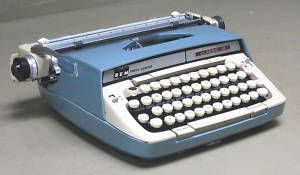I start my day with a wellspring of words that somehow fill my brain overnight. Stimulated by morning coffee and newspapers, I approach my desk primed to put words in the mouths of characters, or if I’m lucky, produce a small jewel of an essay. I say lucky, because an essay can be finished in a day, while novel writing… takes longer. It was an essay by Garrison Keillor in today’s news that made me remember an episode from his personal story. Enamored with all things Scandinavian, he left his native land and moved to Norway. Back in the US he was considered a rustic intellectual, an original wit, a man who could fill a weekly radio spot with his own mellifluous voice and wry observations from Lake Woebegone. Transported and stripped of language, Garrison Keillor found himself being talked at as if he were a moron. Of course, even Norwegian morons can complete a sentence.
I always said that my own love affair with words erupted spontaneously, like wisdom teeth. My work as a property manager bored me. At my desk on the 8th floor of the 500,000 sf building I was supposed to be managing, I began scribbling out word combinations that gave me a peculiar satisfaction. The pad and paper went with me everywhere. There was a particular bottleneck on my drive to work that produced many a fine sentence.
When my secretary wasn’t on the “word processor”–our term for the first personal computer, a thing so bulky it had its own room–I would slip in and compose even longer chunks of verbiage. I loved seeing my sentences lit up on the computer screen, the letters made up of glowing green dots in those days. Eventually I quit my good-paying job to make no money at all and I was much happier. I never could get those monthly balance thingies. My staff gave me a Thesaurus and a box of pencils for a going-away present.
When I ventured beyond the academic world, white male managers who could not type were the norm. I got my first job in business because of my fast accurate typing, not to mention that I could correct my boss’s spelling errors, and improve his clumsy sentence structure. Ironically, my ability to type made me too valuable to send into the management program. There were only a few women managers at Gerald Hines at the time. To get ahead, I had to quit that job and go to a company run by a younger and more progressive man than Mr. Hines.
Back in high school, I took typing from Mrs. Minnie Jesson. I still remember the speed drills, the exact placement of fingers on the QWERTY keyboard, the typing book that formed its own stand, the towering manual typewriters built to withstand the abuse of adolescent hands, and how I asked for and got a Smith-Corona portable typewriter for Christmas that year. Typing class drew few boys. No one foresaw a time when the human population would carry tiny keyboards with them everywhere. A few years later I stood in front of my own classroom teaching reading and writing skills. Our inner-city junior high was outfitted with one typing classroom and I was asked to fill a 40-minute time slot. It was the only class I ever taught that no one asked why they had to take it.
Skip forward to my business years. Sometimes an obstreperous tenant required an exquisitely crafted letter. My bosses had always dictated theirs, or written them out in long-hand for me to type. As a boss myself, as a former typing and English teacher, I composed my letters on the computer and left them for my secretary to format and print. Back for a visit, I watched my old boss laboriously peck out an email with two fingers on the laptop that was now standard equipment on every executive desk. He probably felt like Garrison Keillor in the land of smart Norwegians.

